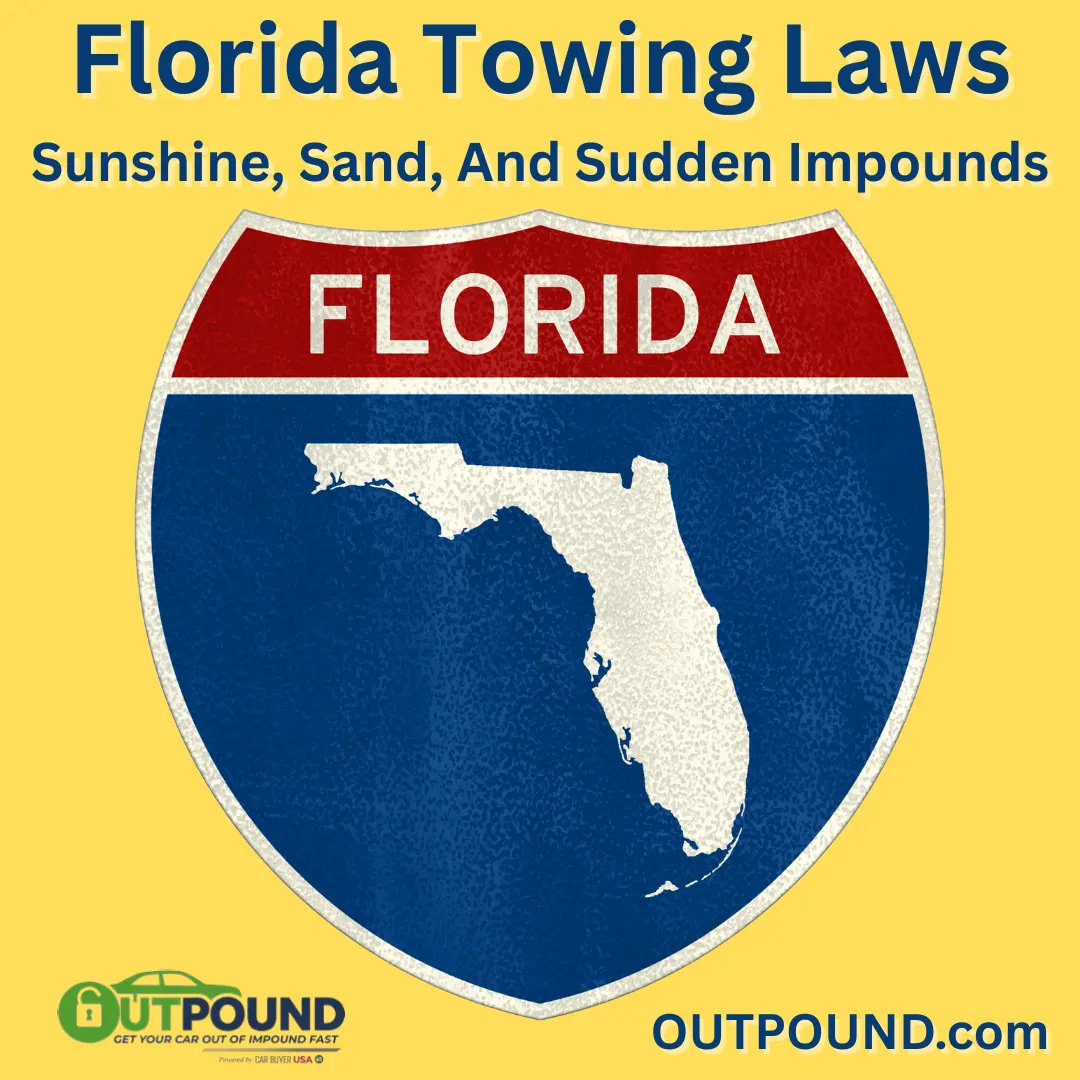Sunshine, Sand, And Sudden Impounds

Welcome to Florida, where the sun is hot, the humidity is thick, and your car can vanish faster than a tourist with a sunburn. Between the chaotic parking lots of Miami Beach and the HOA-loving suburbs of Orlando, Florida’s towing industry has become an unholy alliance of fine print, flashing lights, and cash- only redemption fees. If you’ve been towed in the Sunshine State, buckle up. You’re about to take a wild ride through the swampland of towing law.
Who Can Tow?
In Florida, only licensed operators can legally tow your vehicle. That’s good news in theory, until you realize nearly every city has its own licensing requirements and interpretation of “legally.” Private property owners can authorize a tow without warning if your vehicle’s parked where it “shouldn’t be.” Even a missing parking decal or “slightly over the line” offense can send your car to the impound yard faster than you can say, “But I was just running in for coffee!”
When Can They Tow?
If your car blocks traffic, sits in a fire lane, or dares to rest in a private spot, it’s fair game. Florida’s towing laws require a visible sign at the entrance to private lots, but in practice, those signs are often half-hidden by palm trees or faded beyond recognition. Many towers count on this confusion. You’ll step out of Publix with a bag of subs only to find your car replaced by a patch of hot asphalt and a smug tow-away zone notice.
Notice and Notification
Legally, towers must notify local law enforcement within 30 minutes of towing a vehicle. You, the owner, get a notice mailed to you within seven business days. But let’s be honest, you’ll already have paid the ransom before that letter arrives. It’s part of the Florida Towing Shuffle: find your car, fork over the cash, and pray it still has all four tires.
Fees and Fines
Florida law caps fees...well, sort of. The maximum rate varies by county and can include separate “administrative,” “storage,” and “after-hours release” fees. Miami-Dade, for example, allows hook-up fees around $125–$150, plus daily storage around $25–$40. Miss a day, and the total skyrockets. Some yards charge extra if you show up after 5 p.m., because apparently returning your property after business hours is a luxury service.
Vehicle Recovery
To reclaim your vehicle, you’ll need ID, proof of ownership, and patience rivaling a saint. Some yards demand cash only. Others tack on credit card surcharges “for convenience.” You can request an itemized statement, but be prepared for creative accounting. If you suspect overcharging, you can file a complaint with the Florida Department of Agriculture and Consumer Services. Just don’t expect them to rush to your rescue.
Legal Recourse (Good Luck)
You can dispute an illegal tow, but it’s like fighting a gator with a pool noodle. The process involves filing a complaint, attending a hearing, and proving the tow was unjustified. Most people give up long before that.
The Final Yank
In Florida, the only thing more unpredictable than the weather is whether your car will still be there when you get back. Tow yards thrive on confusion, red tape, and desperation, but you don’t have to. Head to OUTPOUND.com, where you can track your towed car, verify fees, and escape the Florida impound circus with your sanity (mostly) intact.

